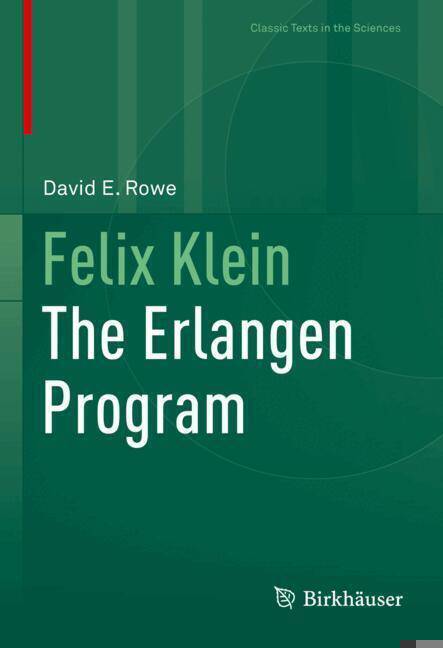
- Afhalen na 1 uur in een winkel met voorraad
- Gratis thuislevering in België vanaf € 30
- Ruim aanbod met 7 miljoen producten
- Afhalen na 1 uur in een winkel met voorraad
- Gratis thuislevering in België vanaf € 30
- Ruim aanbod met 7 miljoen producten
Omschrijving
This book presents a historical account of Felix Klein's "Comparative Reflections on Recent Research in Geometry" (1872), better known as his "Erlangen Program. Originally conceived and written when Klein was collaborating with Sophus Lie, this bold essay initially made little impression on contemporary researchers. Decades later, however, it eventually became a famous classic. Eminent mathematicians hailed Klein s main message the role of invariants of transformation groups in geometry as presaging major developments in mathematics and physics.
The first part of this book focuses on the prehistory surrounding Klein s Erlangen Program, stressing the motivations that led Klein to write it. The core of the book (Part II) then presents a new translation of Klein's original text, followed by detailed textual analysis aimed at guiding the reader through its rather terse and opaque prose. Part III deals with its complicated reception history, treated in four periods spanning the years from 1872 to 1930. This culminated during Klein s lifetime with his efforts to promote the "Erlangen Program as a framework for interpreting Einstein s theory of relativity. After his death in 1925, the viability of this framework became a contentious issue among leading differential geometers. Part IV looks back on the transformations in mathematics that led to a modernized interpretation of Klein s message. The book also explores in depth how the growing fame of the Erlangen Program undermined Klein s friendship with Sophus Lie, leading to a dramatic public break between them in 1893.
Beyond the "Erlangen Program itself, this book deals with many of Felix Klein s other works. As an introduction to a largely forgotten world of ideas, this study will appeal not only to experts but also to graduate students and all those with a serious interest in the history of modern mathematics.
Specificaties
Betrokkenen
- Auteur(s):
- Uitgeverij:
Inhoud
- Aantal bladzijden:
- 457
- Taal:
- Engels
- Reeks:
Eigenschappen
- Productcode (EAN):
- 9783031854736
- Verschijningsdatum:
- 8/05/2025
- Uitvoering:
- Hardcover
- Formaat:
- Genaaid
- Afmetingen:
- 168 mm x 240 mm

Alleen bij Standaard Boekhandel
Beoordelingen
We publiceren alleen reviews die voldoen aan de voorwaarden voor reviews. Bekijk onze voorwaarden voor reviews.











